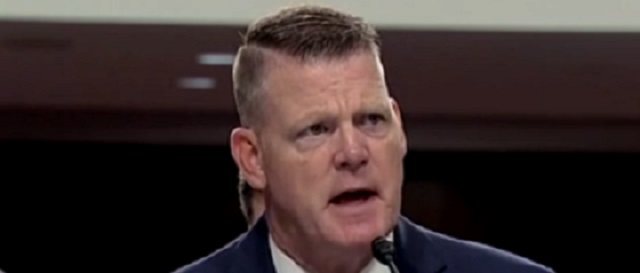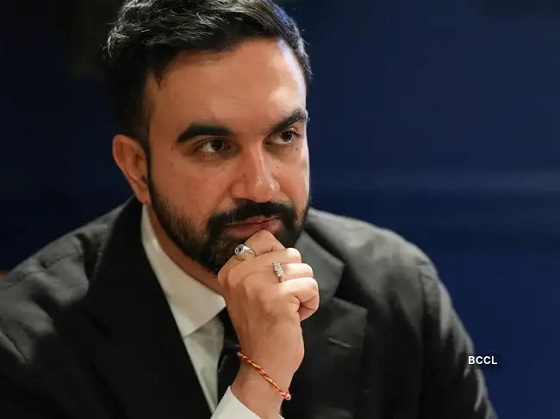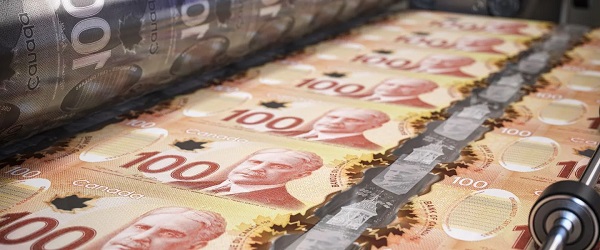International
Acting Secret Service Chief ‘Retaliated Against’ Agents Who Had Security Concerns At Trump Event, Whistleblower Claims

Acting Secret Service Director Ronald Rowe
From the Daily Caller News Foundation
A whistleblower alleged that Secret Service acting Director Ronald Rowe personally cut security resources and “retaliated” against agents with security concerns leading up to former President Donald Trump’s rally on July 13, according to a letter released Thursday.
The whistleblower alleged that Rowe personally implemented “significant cuts” to the Counter Surveillance Division (CSD), which does advanced threat assessments for venues, and alleged that agents who expressed security concerns were “retaliated against,” according to Missouri Republican Sen. Josh Hawley’s letter to Rowe. As a result, the CSD failed to perform its “typical evaluation” of the rally venue in Butler County, Pennsylvania, and “was not present on the day” of the attempted assassination.
“The whistleblower claims that if personnel from CSD had been present at the rally, the gunman would have been handcuffed in the parking lot after being spotted with a rangefinder,” the letter states.
🚨🚨 NEW – Whistleblower tells me Secret Service Acting Director Rowe personally directed cuts to the USSS agents who do threat assessments for events. Whistleblower says those agents were NOT present in Butler – and some of them had warned of security problems for months pic.twitter.com/v9igQ5L7FZ
— Josh Hawley (@HawleyMO) August 1, 2024
“Secret Service personnel expressed alarm that individuals were admitted to the event without vetting,” the letter says. “The whistleblower alleges that those who raised such concerns were retaliated against.”
At the July 13 rally, 20-year-old Thomas Matthew Crooks was able to fire shots at the former president from a rooftop just 130 yards away from the stage. Crooks had reportedly been spotted by witnesses, flagged by Secret Service and even was identified by a local counter sniper over an hour and a half before Trump took the stage.
“A whistleblower has alleged to my office that the Secret Service Counter Surveillance Division (CSD), the division that performs threat assessment of event sites before the event occurs, did not perform its typical evaluation of the Butler site and was not present on the day,” the letter states. “This is significant because CSD’s duties include evaluating potential security threats outside the security perimeter and mitigating those threats during the event.”
As a result of these security lapses, Crooks was able to take aim at and injure the former president, kill volunteer firefighter Corey Comperatore and injure attendees James Copenhaver and David Dutch, who are both in stable condition.
Rowe testified on Tuesday before a joint hearing held by the Senate Judiciary and Homeland Security Committee after U.S. Secret Service Director Kimberly Cheatle resigned on July 23 following her own evasive congressional testimony. Rowe’s testimony was similarly evasive as he left many lawmakers’ questions unanswered.
“You acknowledged in your Senate testimony that the American Glass Research complex should have been included in the security perimeter for the Butler event,” the letter says. “The whistleblower alleges that because CSD was not present in Butler, this manifest shortcoming was never properly flagged or mitigated.”
Despite this, Trump has vowed to continue holding outdoor rallies and said that the Secret Service will “substantially step up” their security detail going forward, according to a post on Truth Social from Saturday.
The Secret Service didn’t immediately respond to the Daily Caller News Foundation’s request for comment.
Featured image credit: Screenshot/Rumble/Senate Judiciary Committee
espionage
U.S. Charges Three More Chinese Scholars in Wuhan Bio-Smuggling Case, Citing Pattern of Foreign Exploitation in American Research Labs

Federal prosecutors allege visiting researchers at the University of Michigan’s “Xu Lab” conspired to import undeclared biological materials from Wuhan.
Federal prosecutors have charged three additional Chinese research scholars connected to the so-called “Xu Lab” at the University of Michigan with conspiring to smuggle biological materials from Wuhan and making false statements — the latest in a string of national security cases involving suspicious research activity at the university’s Life Sciences Institute.
Named in a newly filed criminal complaint are Xu Bai, 28, and Fengfan Zhang, 27, who face conspiracy counts, and Zhiyong Zhang, 30, who is accused of making false statements. All three held student exchange visas and worked in the lab of Xianzhong “Shawn” Xu, according to the Justice Department. Chengxuan Han, a Chinese citizen who also worked in Xu’s lab, previously pleaded no contest in the related roundworm smuggling case.
According to the complaint, in 2024 and 2025 Bai and Fengfan Zhang received multiple shipments containing concealed biological materials related to roundworms that had been sent from China by Han, a doctoral student at Huazhong University of Science and Technology in Wuhan. The case accelerated when Han traveled to work in the Xu Lab in June 2025. She was questioned at the border and allegedly evaded searches by wiping her phone and concealing biological material.
“At some point, pattern becomes practice. And, apparently, these three men are part of a long and alarming pattern of criminal activities committed by Chinese nationals under the cover of the University of Michigan,” U.S. Attorney Jerome F. Gorgon Jr. said. “This is a threat to our collective security.”
As the Federal Bureau of Investigation counterintelligence case takes shape, the alleged facts resemble a much more serious episode that occurred before the COVID-19 pandemic at Canada’s most secure pathogen research lab in Winnipeg. In that case, according to Canadian intelligence reports, Chinese international students working under Chinese Canadian scientist Xiangguo Qiu were found to be clandestinely importing and exporting biological materials and secretly using the high-security facility for research connected to People’s Liberation Army biological weapons and vaccine programs, including Ebola and bat filovirus studies at the Wuhan Institute of Virology.
Earlier this year, the Justice Department accused two other China-linked researchers, Zunyong Liu and Yunqing Jian, of smuggling Fusarium graminearum — a crop pathogen cited in scientific literature as a potential agricultural terror agent — into the United States for University of Michigan-related research. Their communications referenced shipping biological materials and research plans. Both face smuggling and related charges.
In the new Michigan case, prosecutors allege multiple packages of concealed biological material related to nematode roundworms were shipped from China in 2024 and 2025 by a doctoral student in Wuhan and received by University of Michigan-affiliated scholars. The Justice Department says Han, the prior shipper, pleaded no contest to smuggling and false statement charges this summer before being removed from the United States.
After Han’s removal and an internal university probe into the Xu Lab, the three defendants were terminated for refusing to attend a mandatory meeting, according to the indictment. Investigators say the men then bought tickets to leave from Detroit on Oct. 20, rebooked for Oct. 15, and ultimately attempted to fly out of John F. Kennedy International Airport at 2 a.m. on Oct. 16. During a customs inspection, one defendant allegedly made false statements about Han, while two others admitted receiving packages from her, including after her arrest.
Shawn Xu, who runs the X.Z. Shawn Xu Laboratory, is not charged. From Ann Arbor, Michigan Live reported that federal investigators have not searched Xu, according to his attorney David Nacht.
Xu “has lived in the United States for decades,” Nacht told Michigan Live, adding that Xu studies worms sourced domestically that are not used for commercial purposes.
In the earlier case, Han admitted sending concealed biological materials to University of Michigan recipients. Although the materials were not considered harmful, prosecutors said the shipments violated import and labeling laws.
A Justice Department press release attributed sharp warnings to senior officials about the misuse of academic pathways. “Educational institutions must enhance their admissions procedures to prevent exploitation,” an acting Immigration and Customs Enforcement director said.
“The Chinese nationals charged allegedly were involved in smuggling biological materials into the U.S. on several occasions,” FBI director Kash Patel said. “The FBI and our partners are committed to defending the homeland and stopping any illegal smuggling into our country.”
The Bureau is a reader-supported publication.
To receive new posts and support my work, consider becoming a free or paid subscriber.
Daily Caller
UN Chief Rages Against Dying Of Climate Alarm Light


From the Daily Caller News Foundation
The light of the global climate alarm movement has faded throughout 2025, as even narrative-pushing luminaries like Bill Gates have begun admitting. But that doesn’t mean the bitter clingers to the net-zero by 2050 dogma will go away quietly. No one serves more ably as the poster child of this resistance to reality than U.N. chief Antonio Guterres, who is preparing to host the UN’s annual climate conference, COP30, in Brazil on Nov. 10.
In a speech on Monday, Guterres echoed poet Dylan Thomas’s advice to aging men and women in his famed poem, “Do not go gentle into that good night:”
Do not go gentle into that good night,
Old age should burn and rave at close of day;
Rage, rage against the dying of the light.
Dear Readers:
As a nonprofit, we are dependent on the generosity of our readers.
Please consider making a small donation of any amount here.
Thank you!
Though wise men at their end know dark is right,
Because their words had forked no lightning they
Do not go gentle into that good night.
Seeing that his own words have “forked no lightning,” Guterres raged, raged against the dying of the climate alarm light.
“Governments must arrive at the upcoming COP30 meeting in Brazil with concrete plans to slash their own emissions over the next decade while also delivering climate justice to those on the front lines of a crisis they did little to cause,” Guterres demanded, adding, “Just look at Jamaica.”
Yes, because, as everyone must assuredly know, the Earth has never produced major hurricanes in the past, so it must be the all-powerful climate change bogeyman that produced this major storm at the end of an unusually slow Atlantic hurricane season.
Actually, Guterres’ order to all national governments to arrive in Belem, Brazil outfitted with aspirational plans to meet the net-zero illusion, which everyone knows can and will never be met, helps explain why President Donald Trump will not be sending an official U.S. delegation. Trump has repeatedly made clear – most recently during his September speech before the U.N. General Assembly – that he views the entire climate change agenda as a huge scam. Why waste taxpayer money in pursuit of a fantasy when he’s had so much success pursuing a more productive agenda via direct negotiations with national leaders around the world?
“The Green New Scam would have killed America if President Trump had not been elected to implement his commonsense energy agenda…focused on utilizing the liquid gold under our feet to strengthen our grid stability and drive down costs for American families and businesses,” Taylor Rogers, a White House spokeswoman, said in a statement to the Guardian. “President Trump will not jeopardize our country’s economic and national security to pursue vague climate goals that are killing other countries,” she added.
The Guardian claims that Rogers’s use of the word “scam” refers to the Green New Deal policies pursued by Joe Biden. But that’s only part of it: The President views the entire net-zero project as a global scam designed to support a variety of wealth redistribution schemes and give momentum to the increasingly authoritarian forms of government we currently see cracking down in formerly free democracies like the U.K., Canada, Germany, France, Australia and other western developed nations.
Trump’s focused efforts on reversing vast swaths of Biden’s destructive agenda is undoing 16 years of command-and-control regulatory schemes implemented by the federal government. The resulting elimination of Inflation Reduction Act subsidies is already slowing the growth of the electric vehicles industry and impacting the rise of wind and solar generation as well.
But the impacts are international, too, as developing nations across the world shift direction to be able to do business with the world’s most powerful economy and developed nations in Europe and elsewhere grudgingly strive to remain competitive. Gates provided a clear wake-up call highlighting this global trend with his sudden departure from climate alarmist orthodoxy and its dogmatic narratives with his shift in rhetoric and planned investments laid out in last week’s long blog post.
Guterres, as the titular leader of the climate movement’s center of globalist messaging, sees his perch under assault and responded with a rhetorical effort to reassert his authority. We can expect the secretary general to keep raging as his influence wanes and he is replaced by someone whose own words might fork some lightning.
David Blackmon is an energy writer and consultant based in Texas. He spent 40 years in the oil and gas business, where he specialized in public policy and communications.
-

 Censorship Industrial Complex2 days ago
Censorship Industrial Complex2 days agoHow the UK and Canada Are Leading the West’s Descent into Digital Authoritarianism
-

 Business2 days ago
Business2 days agoCapital Flight Signals No Confidence In Carney’s Agenda
-

 International2 days ago
International2 days agoThe capital of capitalism elects a socialist mayor
-

 Energy1 day ago
Energy1 day agoEby should put up, shut up, or pay up
-

 Business1 day ago
Business1 day agoPulling back the curtain on the Carney government’s first budget
-

 Daily Caller1 day ago
Daily Caller1 day agoUS Eating Canada’s Lunch While Liberals Stall – Trump Admin Announces Record-Shattering Energy Report
-

 Business1 day ago
Business1 day agoThe Liberal budget is a massive FAILURE: Former Liberal Cabinet Member Dan McTeague
-

 Business1 day ago
Business1 day agoCarney’s budget spares tax status of Canadian churches, pro-life groups after backlash







